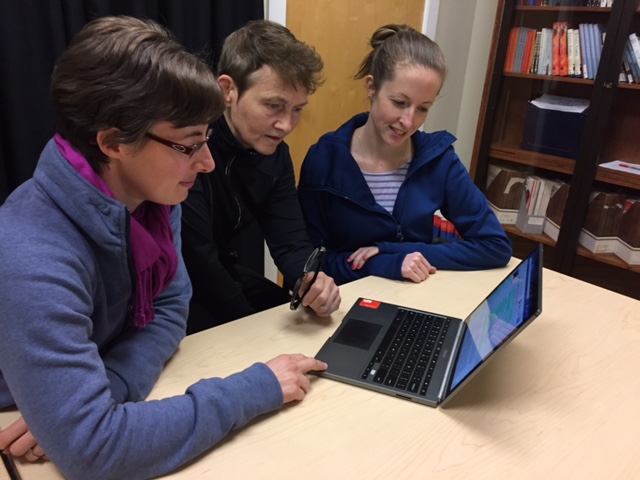Spring 2017 Director's Message

The theme of this e-newsletter arises from Mahatma Gandhi’s quote: “Be the change you want to see in the world”. In effect, the words are a call to change the only person over whom you have any measure of control, namely, yourself. The ‘change’ issue I speak to here is the need to use evidence in practice. Recent changes in health care oversight in Western Canada are trending to an increasing need for practitioners to prove treatment effectiveness and efficacy--results of which could soon be public record. To meet these standards, we must constantly practice in an evidence-informed manner. In my opening remarks during our recent Student Research Day, I suggested that students ask themselves four ‘evidence’ questions when planning every physiotherapy intervention. At this stage in their careers, they can knowledgeably answer these questions. However, they--like you and I--risk becoming out-of-date if these ‘evidence’ skills are not maintained. How would you answer these four questions?
1. Do I have the most appropriate research evidence to inform my decisions? If not, do I know how to find it? Or do I have the resources to retrieve it?
2. Have I considered the relevance of evidence across different contexts, many of which comprise the social determinants of health (e.g. culture, age, ethnicity, gender, and physical, and mental and socio-economic health)?
3. Where can I find other useful information to inform my practice (e.g. standards of care, clinical practice guidelines, federal or provincial health policy, and my chart reviews)?
4. And finally, do I need to refine or enhance my own evidence-informed practice skills?
If these questions make you doubt your preparedness, you are not alone. More importantly, it is not your job alone to translate knowledge and extract the best evidence. Knowledge translation is a ‘complex interaction between researchers and knowledge users’ (CIHR, 2014)1. It is the job of researchers to provide summaries or educational sessions for clinicians, develop/contribute to clinical guidelines and maintain an active multi-media presence.
It is your job, however, to maintain your ‘evidence’ skills using a variety of sources, such as journals (reading, journal clubs), conferences (attending or downloading / buying proceedings), and continuing education—with a view to demanding that facilitators are providing you with evidence-based education.
Each of us can ‘be the change’ in our lives. Each of us can commit to using evidence-based / evidence-informed practice. But we should not do it because some healthcare agency is looking over our shoulders. Rather, we should do it because it is the best means to effective, efficacious care which will benefit Canadians as health consumers and as taxpayers.
_________________
1Canadian Institutes of Health Research (2014) About Knowledge Translation and Commercialization. Available at:http://www.cihr-irsc.gc.ca/e/29418.html (accessed June 4, 2017).
